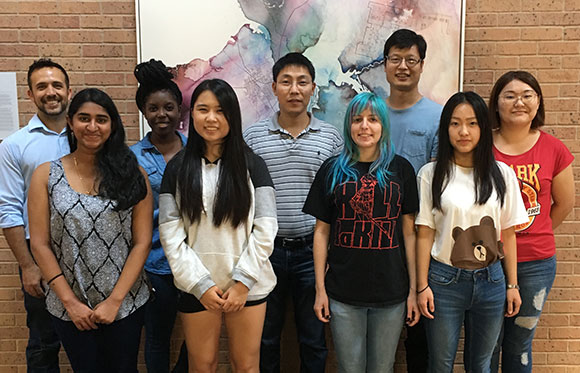
Approximately 5 million coronary stents are implanted world-wide each year. Most clinical stents are made of anti-corrosion metals such as stainless steels. Life-long presence of these stents, however, often falls short in preventing complications including in-stent restenosis (i.e. re-narrowing of arteries) and late thrombosis (i.e. clotting). Alternatives (e.g. biodegradable materials) that could deliver the life-long treatment for coronary blockade have long been sought.
Here at UNT, a novel bioresorbable zinc (Zn)-strontium (Sr) alloy is proposed as a promising candidate for stent. The team led by principal investigator Dr. Don Zhu in Biomedical Engineering has been awarded a $2 million NIH R01 grant to work on this project.
“Upon successful completion of the proposed studies, we will identify a new generation of bioresorbable Zn-based stent biomaterials with the characteristics of 1) sufficient mechanical strength, 2) fully-biodegradability at a rate matching the healing process, and 3) good biocompatibility and vascular regeneration. These novel bioresorbable Zn-based stents would improve the survival rate of patients with coronary heart disease as well as the quality of their lives because these stents would lead to re-endothelialization while minimizing restenosis.” said Dr. Zhu.
